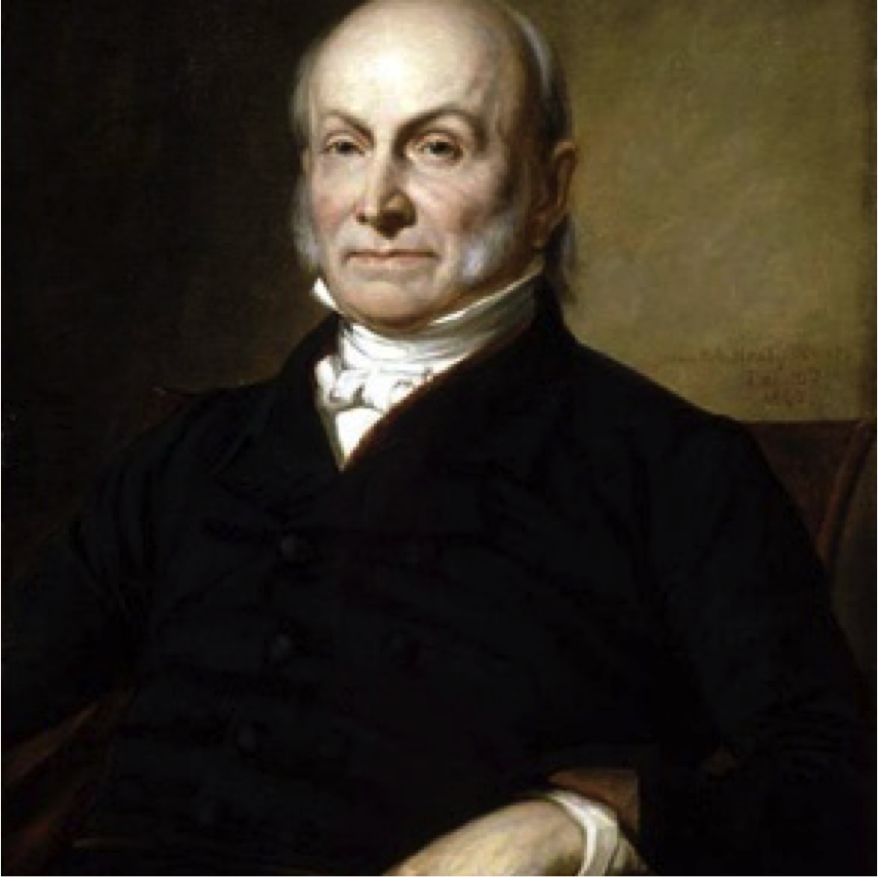The Fail
John Quincy Adams was the sixth President of the United States from 1825 to 1829, for only one term. After losing the second term election to Andrew Jackson, Adams wrote in his diary, “The sun of my political life set in the deepest gloom.”
Although Adams was an outstanding secretary of state under James Monroe from 1817 to 1825, he had very little impact as president. This was partly due to how he was elected and his unwillingness to build alliances. In the election, Adams came in second place in the popular vote to Andrew Jackson; however, Jackson failed to gain enough electoral votes to win the presidency. Thus, the House of Representatives decided the election and chose Adams. Being outraged by the results, Jackson immediately organized opposition to Adams. Not only was Adams being activity opposed, he also was ineffective at building alliances. “Aloof, stubborn, and ferociously independent, he failed to develop the support he needed in Washington, even among his own party. Adams refused to forge the political alliances necessary to push his ideas into policy.”¹
The Forward Wins
Two years after his defeat, with the encouragement of his neighbors, Adams was elected to Congress by his district in Massachusetts. He served for 9 terms from 1830 to 1848. He told his constituents “he would never solicit their votes, and he would follow his conscience at all times.” Adams was the only person to serve in Congress after being the President of the United States, and this was when he had the greatest impact.
Adams had numerous “wins,” including successfully arguing before the U.S. Supreme Court to win freedom for slave mutineers aboard the Spanish ship Amistad, and for championing the bequest of James Smithson of England, who willed $500,000 to the United States for the creation of an institution dedicated to knowledge—later called the Smithsonian Institution.¹ The victory that had one of the greatest impacts on American history was the defeat of the “gag rule.”
During the 24th Congress (1835–1837), the U.S. House of Representatives instituted the “gag rule.” The “gag rule” forbade consideration of any anti-slavery petitions in the House.
“Representative John Quincy Adams of Massachusetts raised the first and most impassioned objections to the procedure. Adams shouted during the roll call vote, ‘I hold the resolution to be a direct violation of the Constitution of the United States.’ For the next four Congresses, Adams fervently fought against the gag rule, declaring it a restriction on free speech.” ²
After an 8-year battle, the “gag rule” ended because of the relentless efforts of Adams. This opened the door to debate, vote, and ultimately end slavery in the United States.
Nicknamed “Old Man Eloquent” because of his extraordinary speeches in opposition to slavery, John Quincy Adams died at the age of 80 on February 23, 1848, after suffering a stroke in the House of Representatives. Shortly before his death, he is quoted as saying, “This is the end of earth, but I am content.”¹
Questions:
• What leadership lessons can you learn from John Quincy Adams?
• How might you apply these lessons to your life right now?




